By The Siberian Times reporter
13 May 2016
Russian government proposes intriguing solution if Ulaanbaatar halts plans for hydropower dams on the Selenga River.
In 2015 Russian Ministry of Natural Resources warned of a devastating impact on the ecosystem of Lake Baikal, which is already facing severe challenges. Picture: Zapovednoye Pribaikalie
The World Bank has assured Moscow that it has suspended plans to finance two major projects on the river, which environmentalists fear would cause major damage to the world's oldest and deepest lake.
Funding from the bank was seen as a important to the building of two out of three major dams, one on the Selenenga, and one on the Orkhon River, a tributary.
Greenpeace was among the groups calling on the World Bank to block funding because of the threat to Baikal which contains 20 per cent of the world's unfrozen freshwater.
Director of international cooperation at the Natural Resources Ministry, Nuritdin Inamov, said: 'Colleagues from the World Bank have heard us, and we have received a letter from Washington.
'The World Bank freezes the work on the project and, moreover, at the moment we are preparing the visit of a World Bank delegation to Buryatia and Irkutsk region so the representatives of the World Bank can hear the opinions of local citizens.'
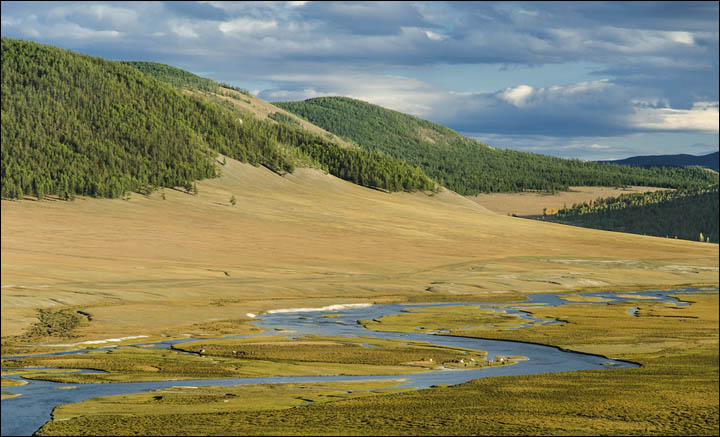
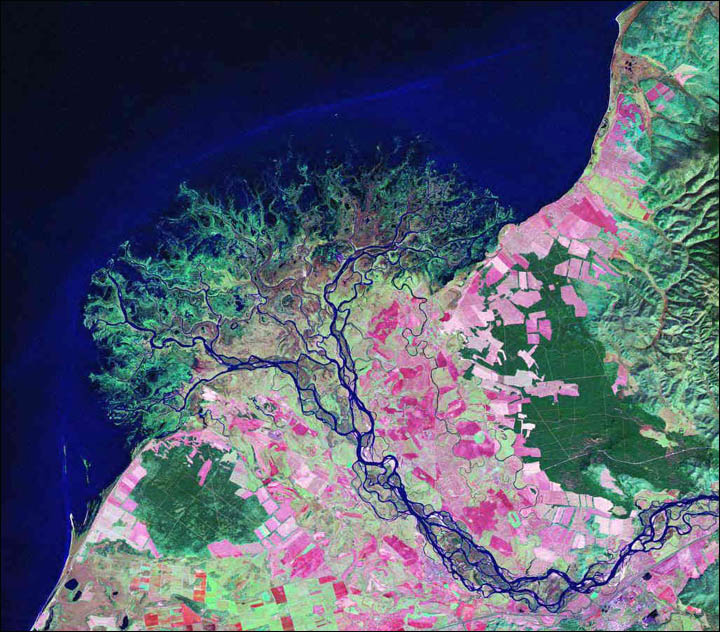
Springhead of Selenga river in Mongolia. Delta of the Selenga River at Lake Baikal. Pictures: lusika33, NASA
He stressed: 'We are working on this issue with the Mongolian side and the World bank, which is one of the anticipated sources of financing for this work, as well as with representatives of UNESCO and the International Union for Conservation of Nature, which provided assistance in providing an expert assessment.
'A meeting with Mongolian partners in Ulaanbaatar is planned for sometime between 20-29 May in order to impact the Mongolian side's position on the need to conclude work on this project by abandoning it.'
He made clear Russia is ready to offer major assistance to Mongolia in exchange for an abandonment of the hydro schemes.
'We're not just saying no to projects, we're offering options that would make it possible to preserve Baikal, preserve good relations with Mongolia and resolve these energy and economic issues,' said Inamov.
Moscow is offering Mongolia alternative options to supply Russian electricity, he said. 'Russia has excess capacity at power plants. It is possible to increase the capacity of the Gusinoozersk-Darkhan power transmission line, a new power line could be built.
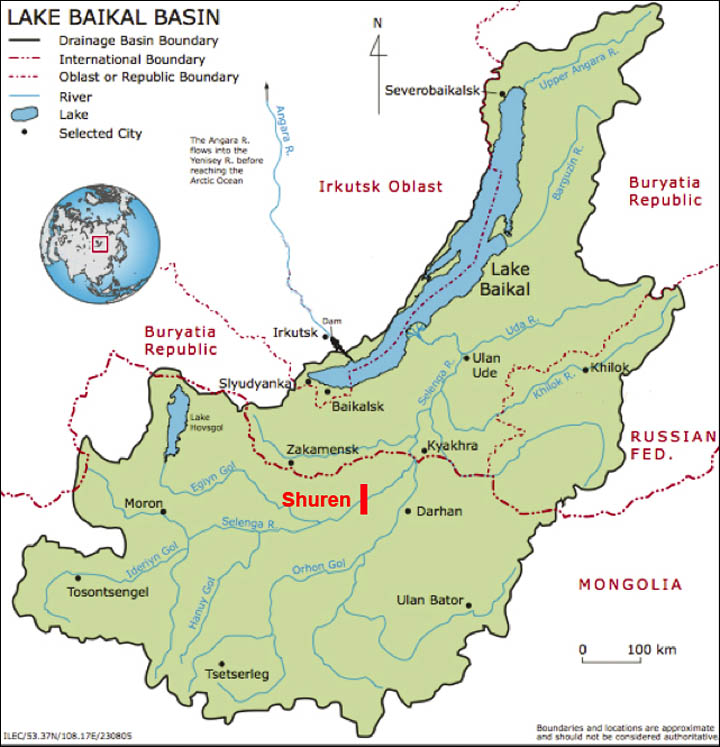
The plans in Mongolia to build several more plants, one involving the Selenga River, are likely to add further strain to the unique eco-system of the Baikal region. Picture: Dr Jaroslav Vrba/UNESCO-IHP
'Mongolia could be offered the position of transit country for supplies of Russian electricity to China. This would enable Mongolia to earn cash for transit.' The issue is important because of a fall in the level of water in the lake which is of acute concern to ecologists.
Mongolia has argued that the lowering is for natural reasons and that the construction of a reservoir would make it possible to regulate the outflow of water from the lake. 'Russia is opposed to such an approach, because the natural flow is disrupted,' said Inamov.
The representatives of Greenpeace Russia believe that the position of the World Bank is important also because it can convince the Chinese authorities, who are funding the construction of the hydro project on the Eg river.
The construction has already started. It violates the previous agreement between Russia and Mongolia that the works will start only after the project will be approved by Russian side and will not harm Baikal.
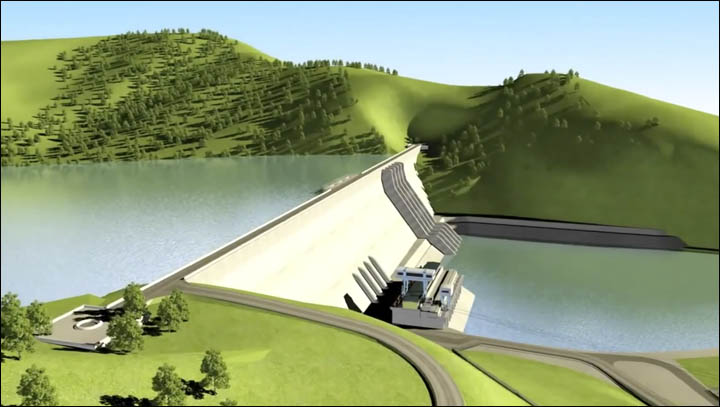
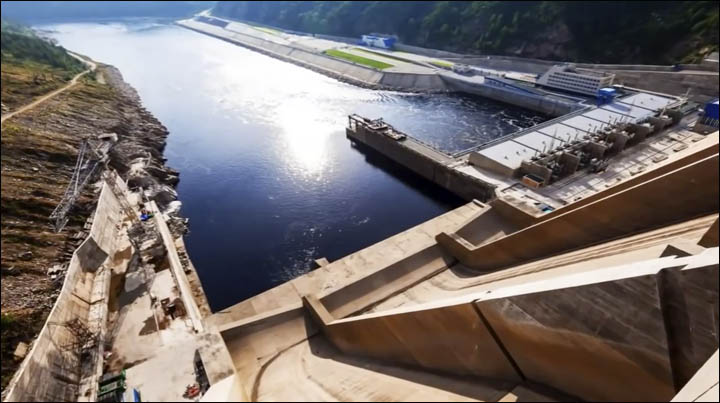
The construction of hydro project on the Eg river, which may also harm the Lake Baikal, has already started with Chinese financial suport. Pictures: Eg River Hydroelectric Project
The struggle around the construction of the hydro power plans on the Selenga and Orkhon started in 2012. At the time, the WWF opposed the project as it would undermine the population of sturgeon, omul and other valuable fish species of Lake Baikal.
The conflict worsened in 2014, when Mongolia deported a Russian ecologist, who opposed the construction of the HPP on Selenga. In 2015 Russian Ministry of Natural Resources warned of a devastating impact on the ecosystem of Lake Baikal, which is already facing severe challenges. The position of the Ministry was backed by President Vladimir Putin.
The level of Lake Baikal on 18 April 18 was measured at 455.72 metres, compared with an official minimum acceptable level of 456 metres. It is even lower than the lowest point of last year. In 2015 Baikal water level decreased to 455.86 metres and then started to increase. The forecast for this year is that in late May the level can decrease even more.
Thought to be 25 million years old, Lake Baikal stretches for 650 kilometres (400 miles) through south-eastern Siberia, north of the Mongolian border. It is up to 1,700 metres deep.
Source:Siberian Times








0 comments:
Post a Comment